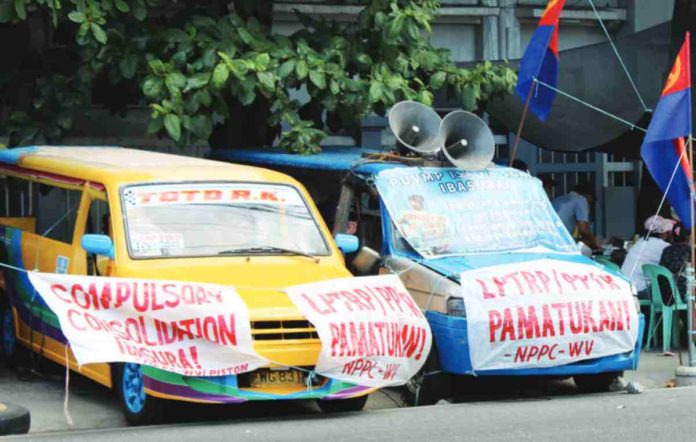
BY GEROME DALIPE IV
ILOILO City – Some 5,909 jeepney operators in Western Visayas consolidated themselves into transport cooperatives or corporations, records from the Land Transportation Franchising and Regulatory Board (LTFRB) in Region 6 showed.
The above figures represent 69.2 percent of the 8,534 total traditional jeepneys in the region as of April 30, the deadline for jeepney consolidation.
That means about 2,625 traditional jeepney operators are on the brink of losing their franchises for non-consolidation under the Public Utility Vehicle Modernization Program (PUVMP).
As traditional jeepney operators scrambled to beat yesterday’s deadline, LTFRB-6 extended its office hours until 8 p.m. to accommodate the applications for consolidation.

In an interview, lawyer Salvador Altura Jr., LTFRB-6 officer-in-charge, said they were expecting last-minute applications for consolidation, especially operators from Bacolod City.
What will happen to the unconsolidated jeepneys by May 1 (today)?
Although the unconsolidated jeepneys will be considered “colorum” or illegal, they will not be apprehended yet.
Altura said they would serve summons to unconsolidated jeepney operators.
LTFRB chairman Teofilo Guadiz III announced they would give unconsolidated jeepneys a 15-day leeway to still ply their routes before the government starts impounding their vehicles.
The LTFRB is set to issue a memorandum circular containing guidelines on what to do with the unconsolidated jeepneys.
But Guadiz maintained the LTFRB will surely revoke the franchises of individual operators who failed to consolidate before the deadline, rendering them “colorum.”
Jeepney operators and drivers could face hefty penalties reaching P50,000, along with a one-year suspension for drivers. Impounded jeepneys will also be impounded.
In Iloilo City, Altura said LTFRB-6 enforcers will not yet check the documents of jeepney drivers pending the release of a memorandum circular from the central office.
Some of these traditional consolidated jeepneys will also be utilized for the Service Contracting Program, or Libreng Sakay, in Iloilo City and other identified routes.
A total of 1,692 jeepney operators consolidated themselves into cooperatives in Iloilo City, or 75 percent, out of 2,266 total traditional units.
Bacolod City posted the lowest consolidation rate in the region as only 620 jeepney operators consolidated, or 27 percent, out of 2,313 total numbers of traditional units.
On the other hand, 1,919 jeepney operators consolidated themselves in Iloilo, or 97 percent, out of 1,978 jeepney operators.
President Ferdinand Marcos Jr. earlier confirmed that there would be no further extension to the April 30 deadline for individual jeepneys to consolidate into cooperatives and corporations.
The government has been extending the deadline for the consolidation of public utility vehicles (PUV) for eight times since 2022 supposedly to give more time to those drivers and operators who did not meet the deadline to consolidate.
The consolidation process is among the 10 components of the modernization program. Through consolidation, the LTFRB stressed that PUV units would be allocated equally to rationalized routes to prevent competition among drivers over the same route.
Launched in June 2017, the PUV Modernization Program is the flagship, non-infrastructure project of former President Rodrigo Duterte. It seeks to phase out PUVs aged 15 years or older.
The program promises a “comfortable, safe, reliable, convenient, affordable and environmentally sustainable” public transportation system in the country.
But several transport and cause-oriented groups decried the program as “anti-poor,” arguing that the new jeepney unit would cost them roughly P2.4 million per unit.
They also lamented that only multi-million peso companies can afford to buy the new “fleet management system” that sets a minimum of 15 units per franchise.
The transport leaders also claimed that some components of the program are disadvantageous to the transport cooperatives such as forcing the cooperative to avail of the modern units./PN




